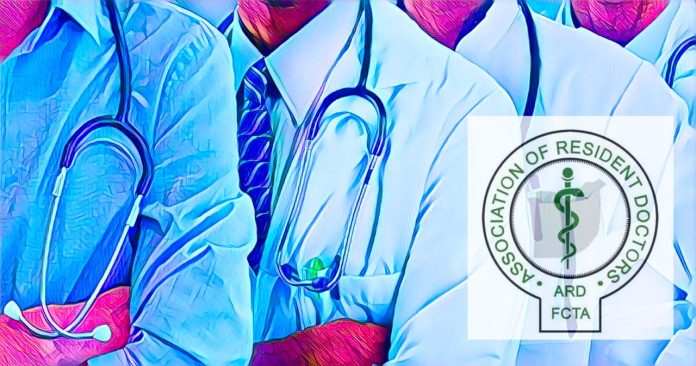KEY POINTS
-
ARD-FCTA strike persists despite partial salary payments.
-
Partial payments of the Medical Residency Training Fund were made.
-
Outstanding demands continue to fuel ARD-FCTA strike action.
Despite the government’s partial release of salary arrears and the Medical Residency Training Fund, the Association of Resident Doctors under the Federal Capital Territory Administration (ARD-FCTA) has declared that it will continue its indefinite strike.
ARD-FCTA strike continues after partial payments
The association acknowledged that some payments had been given to doctors who had been unpaid for months in a statement signed by its president, Dr. George Ebong, but emphasized that the reaction was selective and lacking. According to the group, the action merely signaled the “beginning of implementation” of its requests.
The statement said that on Monday evening, 28 physicians who had been behind on their salaries for a month to a year were paid. Additionally, the FCT Administration started paying out the Medical Residency Training Fund, however only 103 of the 150 impacted physicians received coverage, leaving 47 unpaid. On Tuesday, October salaries were credited.
The Nigerian Association of Resident Doctors announced a statewide strike last Saturday, and the ARD-FCTA, which represents physicians in 14 district and general hospitals as well as the Department of Public Health, joined it. The purpose of the action was to call for better working conditions, equitable compensation, and enhanced welfare in all federal and FCT healthcare facilities.
Salary and training fund payments leave gaps
According to Punch, the association stated the walkout would continue until all outstanding issues are resolved, while also praising FCT Minister Nyesom Wike for taking action to ease the impasse. Among these are the remaining 47 doctors’ training funds, wage arrears for external residents that are due for up to seven months, arrears for promotions and skips, and modifications to the Consolidated Medical wage Structure that have already been put into place by federal institutions.
Additional unresolved issues include compensation awards, the hiring of more medical staff to relieve the burden on current staff, and the payment of a 13-month hazard allowance backlog that dates back to 2021.
The statement said, “The government should listen to our grievances without waiting for a strike.” “Although we value the conversation thus far, our members are unwavering. The strike won’t end until all unmet demands have been met.



